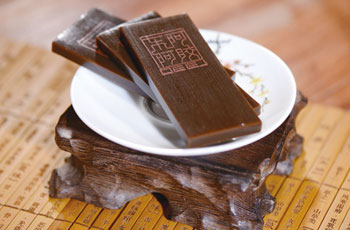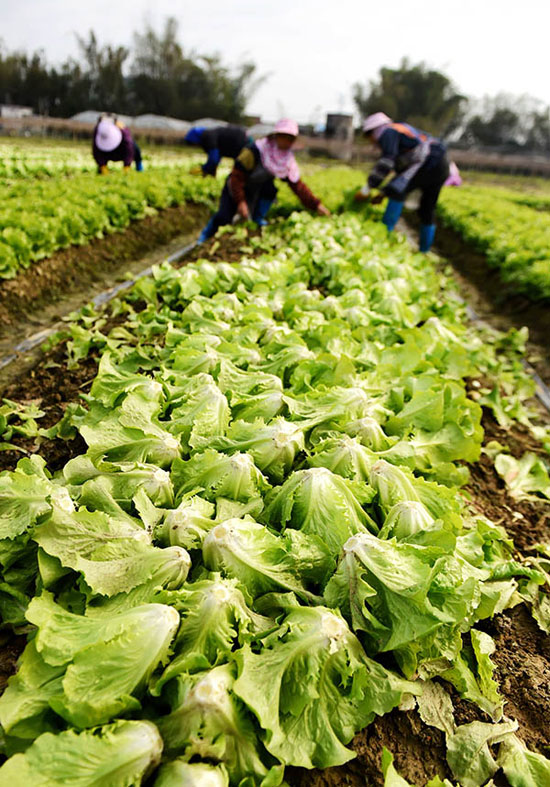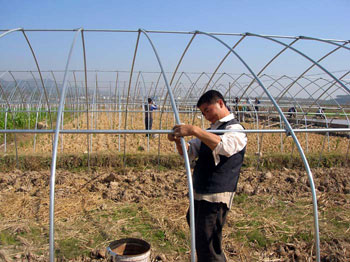Ejiao's annual output of 5,000 tons of donkey skin is only enough to supply 60%.
Original title: with so many donkey skins, how can you produce 5,000 tons of donkey hide per year?

This is a donkey-hide gelatin produced by an Ejiao enterprise in Donga County, Shandong Province (photo taken on December 28, 2015). Photo taken by Xinhua News Agency reporter Zhou Ke
The cold is fierce, and it is also the time to replenish in winter. As a traditional blood tonic, donkey hide gelatin, though "precious", is very popular. But have you ever worried that when you pay a lot of money, what you buy is fake and shoddy donkey-hide made from raw materials such as cattle, pigs, horse skins and even industrial skins? Industry insiders point out that based on the supply of raw materials for donkey skins, the annual output of donkey hide should be only about 60% of the actual sales. This means that nearly 40% of the fake raw materials may be mixed into the production process, incarnated into a variety of "donkey-hide gelatin" products, openly sold in the market.
VS output of raw material
This is a group of intriguing but inscrutable figures: according to the annual production report of more than 100 Ejiao production enterprises, the Shandong Ejiao Industry Association reckons that the total annual output of Ejiao is at least 5000 tons.
Market monitoring data from Dong'e Ejiao Co., Ltd., a leading company in the Ejiao industry, show that at present, according to the sales volume of Ejiao in the Chinese market, about 4 million donkey skins are needed, while the total domestic supply is less than 1.8 million.
According to the National Animal Husbandry Statistical Yearbook, the number of donkeys in China has dropped from 11 million in the 1990s to 6 million at present, and the number is still declining by about 300000 a year. Dong Shuguang, a professional in the Ejiao industry, said that according to the calculation of 1.2 million normal hurdles per year, coupled with the import of donkey skins, the total amount of donkey hide that can be produced in the whole year is more than 3000 tons. The donkey skin available for glue throughout the year is only enough to achieve about 60% of the current output.
Bu Xun, director of the sequencing Center of the Biotechnology Research Center of the Shandong Academy of Agricultural Sciences, said that the donkey stock in China continues to decline because of the difficulty in breeding, long cycle, slow efficiency, low efficiency and difficulties in large-scale breeding. The contradiction between supply and demand has led to a sharp increase in the price of donkey skin year by year, and the price of raw donkey skin is increasing at a rate of 23% every year. "A piece of donkey skin costs between 2000 yuan and 3000 yuan, while a piece of horse and mule skin costs only 200 yuan. Pig skin and some leftovers from making leather shoes and bags are even cheaper."
During the interview, a number of industry insiders told reporters that driven by profiteering, some manufacturers frequently appeared adulteration in donkey-hide gelatin raw materials. Due to the relatively low price, these fake and shoddy Ejiao products are sold to remote county and township supermarkets or pharmacies through licensing or retail, or under the guise of low prices through network channels.
Dong Shuguang said that at present, the main medicinal and edible Ejiao products on the market are Ejiao block, Ejiao oral liquid, Ejiao cake, Ejiao jujube and so on. These products are a mixture of fish and dragons, and some donkey-hide gelatin cakes do not even contain donkey-hide gelatin at all.
The "crisis of trust" has become a big problem.
"the more these donkeys are cooked, the more smelly they are. Can they be eaten?" A woman surnamed Chen reflected that the taste and color of the donkey-hide gelatin she bought at a drugstore in the local township was intimidating, but she dared not eat it when she bought it back.
Donkey-hide gelatin is a valuable traditional Chinese medicine, which is unique to Shandong. More than 90% of the country's donkey-hide gelatin is produced in Shandong. Yan Shi, member of the standing Committee of the academic thought Branch of famous doctors of the Chinese Society of traditional Chinese Medicine, said that the Pharmacopoeia clearly stipulates that Ejiao can only be made from donkey skin, which has the effect of tonifying blood, nourishing yin and moistening dryness. The gelatin effect of other animal fur is different, among which cowhide gelatin is called yellow gelatin, and its function is similar to Ejiao, but the effect is second, while the effect of "Ejiao" made from horse skin is just the opposite. "once pregnant women eat it, it is very likely to lead to miscarriage."
"the raw material skins of donkey mules and horse mules are indistinguishable from donkey skins in senses, and are easy to be adulterated." Bu Xun said that because mule skin has horse genes, it can't make donkey-hide gelatin. It is understood that at present, the types of donkey-hide gelatin products on the market are messy, with prices ranging from 400 yuan to 4000 yuan per kilogram.
According to the statistics of Shandong Ejiao Industry Association, each donkey skin was less than 500 yuan before 2010, exceeded 1500 yuan in 2014, and the average purchase price exceeded 2600 yuan in 2015. Each donkey skin is expected to produce 1.5kg to 2.5kg donkey hide. The average cost of donkey skin alone is more than 1200 yuan per kilogram.
"Ejiao, which is lower than the cost price on the market, is definitely not authentic Ejiao made from pure donkey skin." Industry insiders say.
Meng Zhaohong, who is in charge of the quality of Dong'e Guoguo Jiaotang, said that at present, the entire donkey-hide gelatin industry is in chaos. How to solve the trust risk of product quality and ensure the long-term and healthy development of the industry is an important issue for Ejiao enterprises.
It's not just a matter of self-discipline.
Industry insiders pointed out that at present, the Ejiao industry is facing two "identification difficulties": first, it is difficult to identify raw materials, and the skin is mixed with mules, horses, cattle, industrial skins, and scraps of slaughterhouses, and the traditional identification methods are challenged; second, it is difficult to identify products, there are many adulterated donkey-hide products, pharmacopoeia methods lag behind, and can not keep up with the counterfeiting technology.
Bu Xun said that in recent years, the state's main target for detecting adulteration in donkey hide products is cowhide, that is, cow-derived ingredients, but there are no mandatory requirements for horse skin, mule skin, pig skin and other ingredients, which leaves room for some illegal traders to confuse donkey skin by various means.
According to people in the Ejiao production industry, at present, the traditional testing means of relying only on the complete "head, ear, tail, hoof" and the whole donkey skin can no longer fully meet the needs of production enterprises, and the key is to control the authenticity of donkey skin raw materials at the source.
Buxun said that food and drug safety is a major livelihood plan, how to achieve results in quality, first, rely on national supervision, second, rely on industry self-discipline, and third, promote technological progress.
Qin Yufeng, a representative inheritor of Ejiao production skills in the national intangible cultural heritage, said that regulators should strengthen online and offline crackdown on counterfeiting in the Ejiao industry to make counterfeiters pay a high price.
Qin Yufeng suggested that the state should step up efforts to support the donkey industry, give the same subsidies as raising cattle and sheep, and take donkey farming as a measure to accurately help the poor, so as to ease the contradiction in the supply of donkey gelatin raw materials. (reporter Zhou Ke)
- Prev

Farmers in Guangxi robbed vegetables after the ice disaster and cold wave.
Farmers in Guangxi robbed vegetables after the ice disaster and cold wave.
- Next

Build a greenhouse and raise the water level to deal with busy planting and breeding
Build a greenhouse and raise the water level to deal with busy planting and breeding
Related
- A course of planting techniques and methods on how to grow carrots
- How to plant the latest tulips?
- Is it better to pick tea in the morning or in the afternoon? When is the best time for tea to be picked? what is the third or fifth tea?
- Launch Yuanxiao Happy combination Haocha + Tea Yuan healthy Taste
- Penghu Tourism "Fireworks 20 Parade with You"
- 2022 West Lake Happiness holds "Digital Revitalization Voucher" and draws iphone13 and laptop.
- Banqiao Fuzhou social houses are designed to change start-up combined with police elimination to create a safe and livable environment
- The convenient measure of "mechanical weeding" in Xinbei has been abused and the Agriculture Bureau has imposed heavy penalties on the illegal land consolidation.
- Changgeng University Joins Hands with Four Memory Factories to Rescue Memory Talent Shortage
- The list of Taiwan's top 100 MVP managers is listed by the Director-General of the Farmers' Association of Sanxia District.

